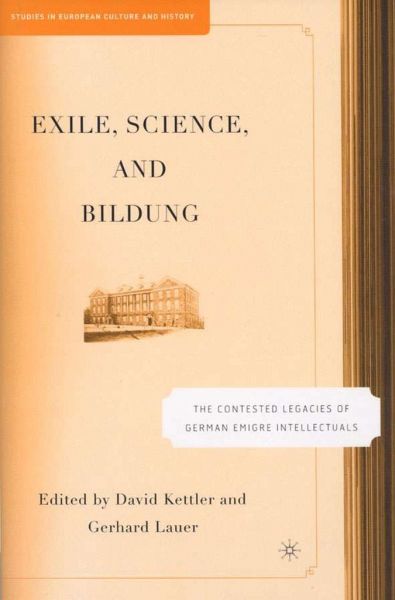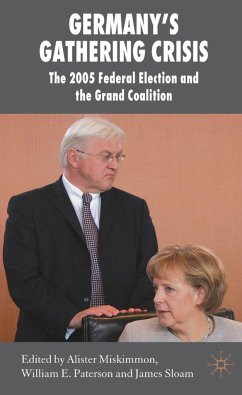
Exile, Science and Bildung
The Contested Legacies of German Intellectual Figures
Herausgegeben: Kettler, D.; Lauer, G.
Versandkostenfrei!
Versandfertig in 6-10 Tagen
38,99 €
inkl. MwSt.

PAYBACK Punkte
19 °P sammeln!
The history of American universities is punctuated by shifts in the terms on which the mission of higher education is defined and debated. A dramatic moment with lasting effects came with the introduction of German-speaking exile intellectuals in the Hitler era. In Germany, the academic culture of the early twentieth century was torn by the struggle between Wissenschaft and Bildung, two symbolic German terms, whose lack of precise English equivalents is a sign of the different configuration in America. The studies in this book examine the achievements of numerous influential émigré intellect...
The history of American universities is punctuated by shifts in the terms on which the mission of higher education is defined and debated. A dramatic moment with lasting effects came with the introduction of German-speaking exile intellectuals in the Hitler era. In Germany, the academic culture of the early twentieth century was torn by the struggle between Wissenschaft and Bildung, two symbolic German terms, whose lack of precise English equivalents is a sign of the different configuration in America. The studies in this book examine the achievements of numerous influential émigré intellectuals against the background of their mediation between the two cultural traditions in science and liberal studies. In showing the richness of reciprocal influences, the book challenges claims about the disruptive influence of exile culture on the American mind.














